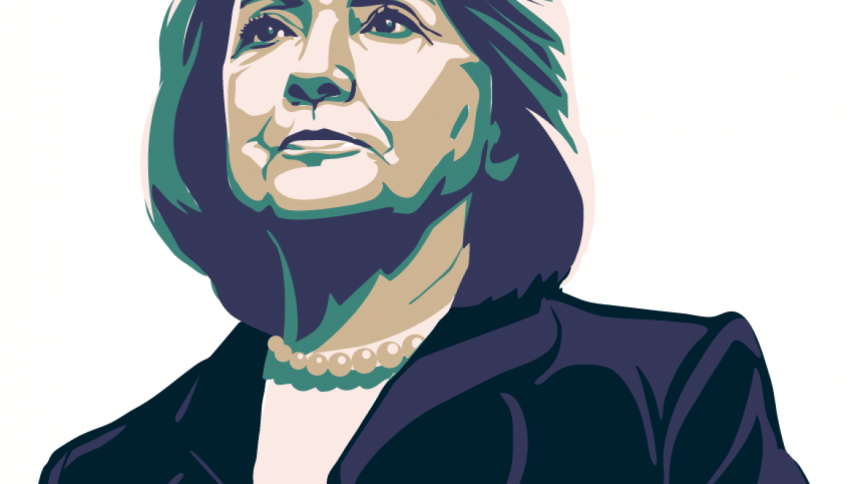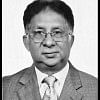Hillary set to win

As America stands less than three weeks away from actual voting day, all indications are that the next occupant of the most powerful office in the country, and perhaps in the world, will be Hillary Rodham Clinton.
Now that all the nationally televised debates are over and the dye has been cast, Donald Trump appears to be standing alone in the dock busy fending off growing allegations of sexual indiscretions and abuse of women, among his long list of debilitating fault lines. Increasingly abandoned by key leaders of the Republican Party, and an offended media unrelenting in its attacks, Trump's attempts to focus on issues that could have mattered are getting impaired by the day with his voice becoming less audible. Hillary Clinton, on the other hand, with her Party solidly standing by her, is running headlong towards the Oval office. Pollsters have adjudicated that Clinton convincingly won all three of the public debates and has momentum on her side. The media projection of the Electoral College vote count also gives her a huge, virtually insurmountable, advantage. She is looking more assured and presidential with her trademark composure holding firm.
The most recent of Trump's many damaging tumbles came in the course of the third and last debate where he publicly pronounced that he might not accept the election outcome, presumably if the outcome does not go his way. This fits into a recent pattern in which he has tried to paint the election system as being rigged. The media, social and mainstream, has predictably pounced on this in no uncertain terms and with speed. Most Americans, including Republicans, would find this most alarming, if not reaching a new low, especially in an election where substance is competing with slur for prominence and where civility is finding it hard to find its place on the stage. Everyone would agree that the election process, even among advanced democracies, maybe less than perfect but they are by and large credible. The beauty of the system, however, is that the loser invariably finds the mental strength to concede to the winner and call for national unity in the larger national interest. Trump seems prepared to break with this healthy tradition that has given the American election and political process its strength.
Throughout the election campaign, Donald Trump has used rhetorical economic populism to appeal to a segment of the American voter who are apparently disillusioned with the political system and want to break away from the status quo. This also includes those who feel they have become victims of a globalised economy. His fear tactic may have worked with the extreme right conservative camp but it has not succeeded in broadening his voter base. Instead, his consistent and unhealthy tone and tenor has turned key voter groups like African Americans, women, Hispanics, and Muslims away from him. Consequently, his claims of being the agent for change now look all but diminished. This has also worked to turn the leadership of the Republican Party against him, further damaging his prospects. Party stalwarts fear that Donald Trump's brash style and his inability to broaden the voter base could impact negatively on the broader electoral scenario where a third of the US Senate seats, the entire House of Representatives and some State Governors are up for elections this November and that could change the landscape in favour of the Democrats. Not surprising therefore that more and more Republicans are distancing themselves from Donald Trump's campaign.
On his relationship with the mainstream American media, the estrangement is clear for all to see. What is also unprecedented is that some known Republican media outlets have formally endorsed Hillary Clinton against their own Party's nominee. It is also for the first time that some United Nation agencies dealing with important social issues like refugees and migration have publicly spoken of the dangers of a Trump presidency. In short, the deck is stacked firmly against him.
In a television interview sometime before the first public debate, Donald Trump had said that in case he loses the election, he and his family would consider going on a long vacation to some island resort in the Pacific. As things stand now and if the current trend continues - there is no reason to believe it won't - the Trump household might as well start looking at possible destinations for such a vacation. However, propriety would dictate that such plans be delayed until Hillary Clinton takes oath as the President of the United States of America in January 2017, becoming in the process the first woman to do so.

 For all latest news, follow The Daily Star's Google News channel.
For all latest news, follow The Daily Star's Google News channel. 



Comments